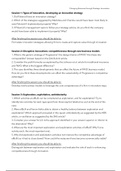Samenvatting
Summary Political Philosophy summarized
- Vak
- Instelling
This is a summary of the PPE course Political Philosophy as taught at the UU. All weekly readings are summarized, in addition to notes on some seminars and lecture clips. Using this summary, I completed the course with an 8.
[Meer zien]





